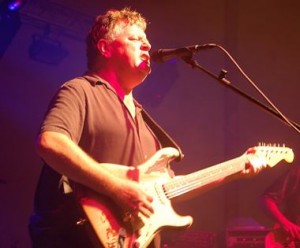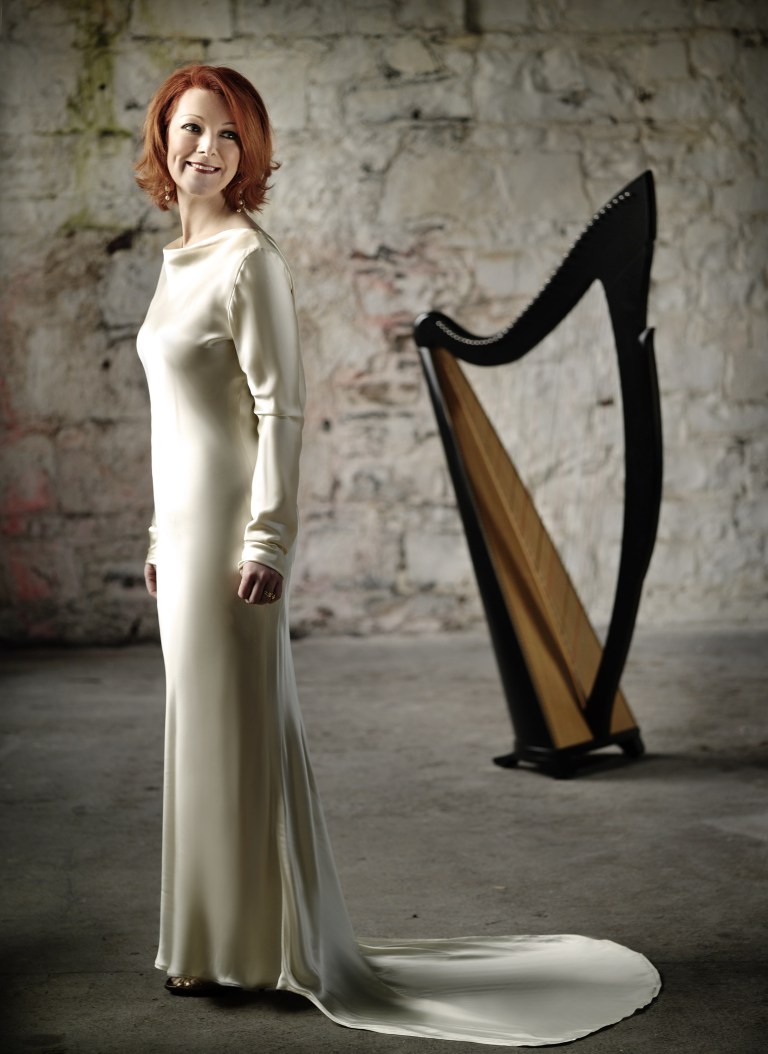Seamus Kelleher’s first solo CD is tailor-made for my demographic: the baby boomer with eclectic musical tastes. Before he went off to record it in Nashville a few months ago, a friend advised him, “Be yourself,” and Kelleher says he was. Clearly, he’s a baby boomer with eclectic musical tastes.
Because of that, “Four Cups of Coffee” defies pigeonholing. Though Kelleher comes from Galway, it’s not entirely Celtic. Though he plays a mean rock guitar, it’s not entirely rock. Though it was recorded in the birthplace of country music, it’s not country. Not entirely. But because he decided it would reflect who he is, it is entirely Seamus Kelleher, which makes listening to “Four Cups of Coffee” a strangely intimate experience. It’s not unusual for performers to reveal some hidden part of their personal lives in their work, but “Four Cups of Coffee” is like an autobiography set to music.
On this CD, you’ll quickly pick up on Kelleher’s own musical influences. He does a rocking blues cover of “What’s Going On” by the late Donegal songwriter and guitarist, Rory Gallagher, whom Kelleher met once, at the age of 15, as Gallagher was coming out of a concert hall. The brief encounter–Gallagher talked to the teen musician for about 20 minutes–led him to consider himself “somewhat keeper of the flame with Rory,” Kelleher told me a few weeks ago. “It was a kindness I’ll never forget–he was probably dying for a drink.” In 2005, Kelleher helped organize a tribute to Gallagher in New York. A film of the event was released on DVD.
On “Dust My Blues,” he channels a black blues guitarist from Mississippi, Elmore James, known as “king of the slide guitar” who was dead by the time Kelleher was nine but who nevertheless still exerts his influence on guitarists everywhere–like Rory Gallagher–who admire the way he electrified the moaning Delta blues sound. Kelleher came to James through an even older musician, Robert Johnson, who recorded “Dust My Blues” in 1936.
“Missing My Hometown” could have been written during any of the waves of the Irish diaspora–or by anyone of a certain age whose thoughts turn to years gone by and the people loved and left behind. An instrumental reprise at the end of the CD reveals a tune that’s just as poignant without lyrics. Kelleher also remembers two long-lost friends, one with a tune he wrote to memorialize a 35-year friendship (“My Friend Ben”) and the other, “Madame,” by his friend Kevin Garvey, which he and Garvey had recorded 30 years before in his apartment.
“September Skies,” which also appears on Blackthorn’s “Push and Pull” CD, is poignant to the point of painful. It’s a song Kelleher wrote after 9/11 about the effect of the tragedy on his town, Cranford, NJ, which lost six people that day. Kelleher, who was teaching at NYU at the time, found himself more a counselor than a teacher because so many of his students lived in dorms across from the World Trade Center. “This is definitely my story,” he says. “My wife and I worked in the World Trade Center back in the late ‘90s and we knew every inch of the towers. We knew some of the people who were killed there, six from our town. My neighbor across the street just got out of the towers before they fell. He said to me, ‘Seamus, I’ve seen things today no man should.’”
It’s the CD’s title tune, “Four Cups of Coffee”– a raunchy bluesy riff on personal demons, including but not limited to caffeine–that’s been getting the most requests at Blackthorn gigs. It’s funny, catchy, and feels uncomfortably like Kelleher’s stab at true confession. (He admits it is.)
But where I keep hitting the back button are on Kelleher’s instrumentals. “Spanish Lady,” which he wrote, is his first attempt at “finger-picking, Chet Atkins style.” I can’t get enough of it. He admits that he had to “stretch” for this one, and took a major risk putting a finger-picking piece on an album produced by a US finger-picking champion, Peter Huttlinger. It could have been a humbling experience–and in many ways, Kelleher says, it was. But if he wasn’t going to take some risks at this point in the game, when was he? It’s a great piece. It will be the track that wears out first on my CD.
“Aran,” is another, an evocative, very Celtic piece that calls to mind the limestone cliffs and crumbled ruins of the islands Kelleher could see from his native Galway. “Corinna” is the only song which seems to absorbed the Nashville influence: It’s a little bit Celtic, a little bit country, very jaunty and lyrical. It’s named for his nephew’s girlfriend who liked the tune. Alas, that romance is no more, but a lovely little song lives on.
And “Nashville Ceili Band?” Imagine a bunch of top musicians who are used to backing the likes of Garth Brooks and The Dixie Chicks sitting in the pub, nursing frothy Guinnesses, playing a string of Irish trad tunes (which aren’t trad at all–Kelleher wrote them, and they’re the most Irish of all the tracks on the CD). You’ll be hitting the back button too.
To order the CD or download a track, go to www.seamuskelleher.com


